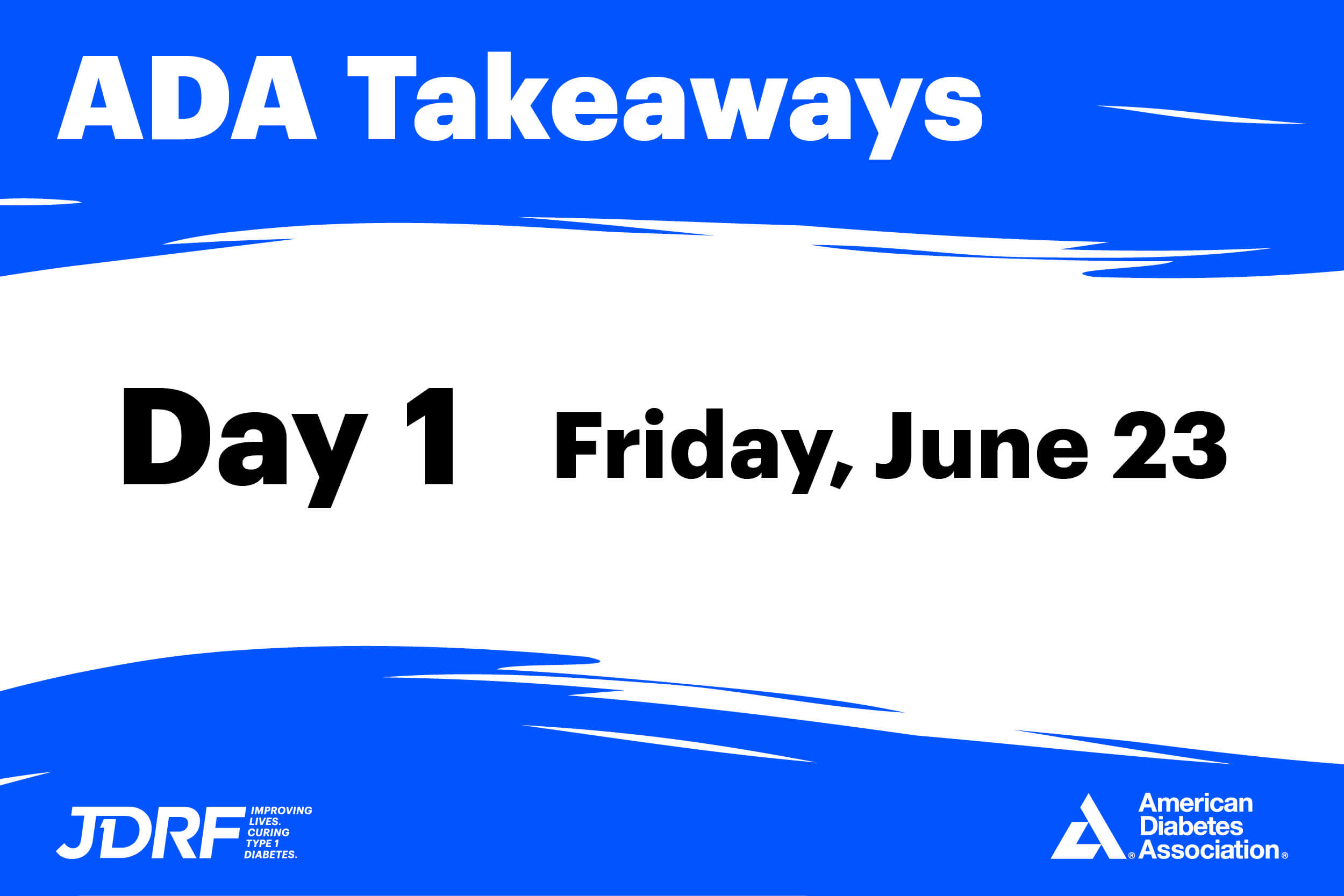
The American Diabetes Association’s 83rd Scientific Sessions is here! Until June 26, scientists will present the latest type 1 diabetes (T1D) research, from beta cell replacement to regeneration, and glucose and complications trials, all with the goal of improving lives for the T1D community.
Here are Breakthrough T1D-funded researchers Drs. Cristina Nostro and Tricia Tang to share their key takeaways from day 1:
Cristina Nostro, Ph.D.
Senior Scientist, McEwen Stem Cell Institute, University Health Network
Associate Professor, University of Toronto
Toronto, Ontario, Canada
Area: Designer Beta Cells
In an all-star line-up, Cristina Nostro, Ph.D., Audrey Parent, Ph.D., Heiko Lickert, Ph.D., and Trevor Reichman, M.D., Ph.D., presented on the state-of-the-art advancements in stem cell-derived beta cells. There were talks on the use of immune-modulated cells to promote tolerance and the use of stem cell-derived receptor to produce higher levels of insulin and be sustained longer when transplanted. But the real highlight of the session was an update on Vertex’s clinical trial to test VX-880, a stem cell-derived replacement therapy for diabetes, presented by Dr. Reichman.
At the ADA’s conference last year, 3 people had been dosed with VX-880, and one of them achieved insulin independence. Now, there are 6 people treated, all of whom produced endogenous insulin and had improved blood-sugar control, while reducing or eliminating insulin use. On the latter, both participants with 1+ year of follow-up achieved insulin independence and exceeded the ADA target time-in-range, while also meeting the primary endpoint of eliminating severe low blood-sugar events.
In other words, both participants with 1+ year of follow-up no longer need to administer insulin through injections or pump therapy and have exceeded the recommended time-in-range.
Vertex’s phase I/II clinical trial of VX-880 was made possible by Doug Melton’s years of JDRF-funded research and a catalytic investment from the T1D Fund in Semma Therapeutics—a biotech company founded by Melton to develop a stem cell-derived islet therapy for T1D—which was acquired by Vertex Pharmaceuticals.
Dr. Nostro, in her video, says, “In the last 20 years, we’ve learned how to differentiate these cells, and now we’re moving them to the clinic and they’re giving us the results that we want. The future is bright. I’m super excited, and I hope you are, too.”
Yes, we are!
Tricia S. Tang, Ph.D., R.Psych.
Associate Professor, Division of Endocrinology, University of British Columbia, Vancouver, Canada
Area: Translating Psychosocial Care into Real-World Practice Settings
The presence of T1D—whether for your child, yourself, or a family member—often affects people’s social, behavioral, and emotional well-being, known collectively as psychosocial health. Psychosocial issues—such as diabetes distress, depression, and anxiety—can put people with T1D at-risk for serious complications.
The session on psychosocial care, reported by Tricia Tang, Ph.D., R.Psych., wanted to know what worked—and didn’t work—in diabetes care to reduce the psychosocial concerns in the real-world practice settings. It featured sessions on psychosocial and behavioral screening, presented by Sarah Corathers, M.D., diabetes distress in type 2 diabetes, presented by Lawrence Fisher, Ph.D., family-based intervention, presented by Jill Weissberg-Benchell, Ph.D., and peer-support models for diabetes management, presented by Dr. Tang.